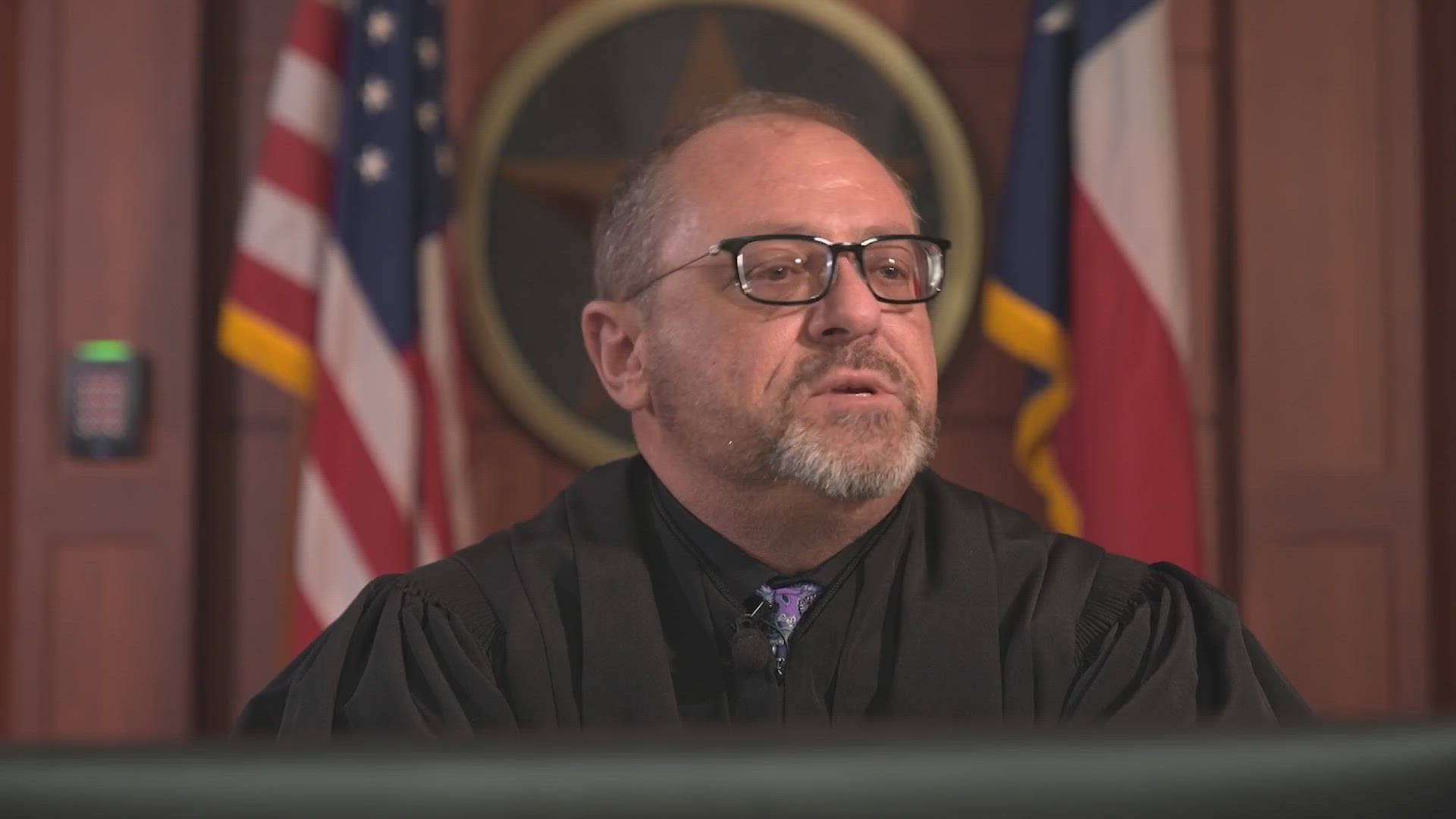DENTON COUNTY, Texas — In a third-floor courtroom in the Denton County Courthouse, Judge Steve Burgess is in charge.
But one Wednesday each month, he shares his courtroom with a few hundred faces.
Burgess decorates his courtroom with posters featuring the names and faces of local men and women who died from drugs.
“Last year, I had over 25 cases in this court that I closed because of suicide and overdoses,” Burgess told WFAA with a tear streaming down his face. “All directly related to drugs.”
In fact, the crisis is worsening so much, Burgess said, he now keeps naloxone at his bench.
“I’ve got two doses here, two needles, um, rubber gloves and all that,” he said as he showed WFAA his Narcan kit.
“The bailiff and the other staff are trained here. We wheel people out of this courtroom…on a gurney," he said.
That’s why Burgess continues to lead a program for first-time drug offenders. If they complete the program successfully, first time offenders can get their charges removed from their record.
To succeed, Burgess explained, they must pass a number of random drug tests over a six-month period, attend a class, and come to court when it’s decorated with the posters. The first-time offenders, he explained, look at the victims' faces and listen to their loved ones speak.
“I have four children, and this is my baby, Abigail,” Adolph Alvarez told the group of first-time offenders, standing next to a poster of his daughter.
“Take this program,” he implored them. “And make a change. Make a reset.”
Burgess told WFAA he and the loved ones talk to these first-time offenders, “because we don’t want to be talking to a gravestone,” he cried.
In an effort to reach them, Judge Burgess even talks about his own loss.
“That…was my baby sister…” he told the courtroom during the program March 22nd. “She died at 50, wearing fentanyl patches.”
“It cost me something to be here,” Alvarez added. “The loss of my daughter.”
Sharon Roland’s son, Randy, died of an overdose too.
“[This program] does make me feel closer to him,” she told WFAA as she sat next to her son’s poster.
“It gives a great purpose. It’s an opportunity for [first time offenders] to make a change…an opportunity for them to take a different path, and not end up here with a poster in a court like this.”
The program is for participants 17 and older, but the average age, Burgess’ staff said, is between 17 and 30 years old.
Burgess said about 500 people have participated in the seven years since the program began.
The program also offers first-time offenders resources about rehabilitation centers and nonprofits they can go to for help.

